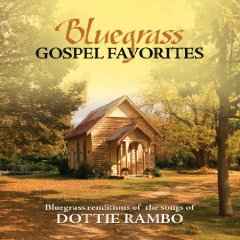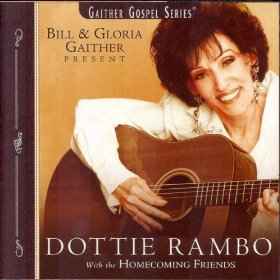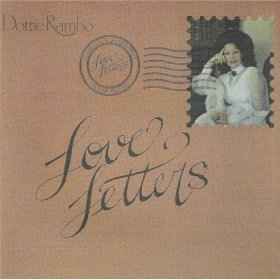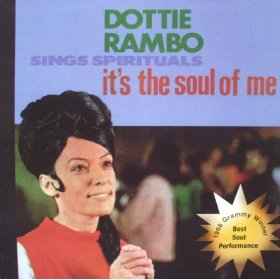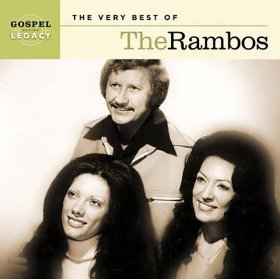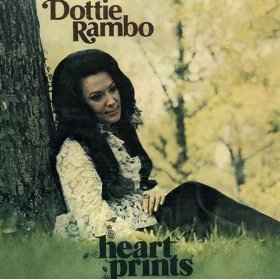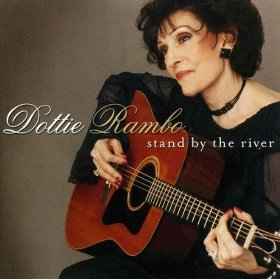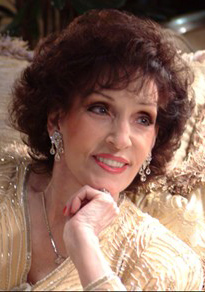At twelve years old, she became a born-again Christian and made a commitment to write and sing Christian music. The decision turned out to be pivotal in more than one way; it did not sit well with her father who gave her an ultimatum – give up Christian music or leave. She left home and went on the road, with her first engagement being at a church in Indianapolis , Indiana . She formed a trio called “The Gospel Echoes” and traveled throughout the midwestern and southern United States. The Gospel Echoes" would consist of several members over the years including "Pat Green" and "Little Joe Hatfield".
In 1950, at age sixteen, she met Buck Rambo at a revival meeting. They married shortly thereafter and began traveling and singing together with "The Gospel Echoes" and later as "The Singing Rambos" and "The Rambos". One of her songs caught the attention of the then-governor of Louisiana, Jimmy Davis. Governor Davis flew her and her family to the governor's mansion so that she could sing her songs for him. Governor Davis paid Dottie around three-thousand dollars to publish her songs. It was more money than she had ever seen. Once Jimmy Davis Music started promoting Dottie Rambo songs in the early 1960s, things would never be the same. During this time Warner Brothers Records signed Dottie and her group, The Gospel Echoes, to a two-record deal. In the middle of it, Warners' executives didn't know what to do with Christian music and suggested that the group move to folk (which the label did with Peter, Paul and Mary) and that Dottie consider doing rhythm and blues. She declined both offers. Her heart was in Gospel music and couldn't be budged.
Governor Davis paid Dottie around three-thousand dollars to publish her songs. It was more money than she had ever seen. Once Jimmy Davis Music started promoting Dottie Rambo songs in the early 1960s, things would never be the same. During this time Warner Brothers Records signed Dottie and her group, The Gospel Echoes, to a two-record deal. In the middle of it, Warners' executives didn't know what to do with Christian music and suggested that the group move to folk (which the label did with Peter, Paul and Mary) and that Dottie consider doing rhythm and blues. She declined both offers. Her heart was in Gospel music and couldn't be budged.
|
Within the span of a few more years Dottie went from $50 a week singing in churches to singing at the largest concert dates across the country. She and the trio were the first non-quartet singers to sing at the Gospel Quartet Convention. Dottie was one of the first Gospel singers, along with her family the Singing Rambos, to sing in Viet Nam for the American troupes in 1967. But Dottie didn't stop at the stage. Dottie's heart led her to the medical tents where men were hurt and dying. Dottie sang, prayed and ministered to those who were hurt beyond repair. Nobody asked her to, but Dottie Rambo went above and beyond the call of duty at every turn.
Her 1968 album, The Soul of Me won the GRAMMY for Best Gospel Album, beating out the likes of Mavis Staples and James Cleveland. Billboard magazine called her "Trendsetter of the year" because of singing with an all-black choir. Her recordings held fast to the cutting edge, using top Nashville musicians, always making her records on par with anybody else on the charts. Dottie continued to observe and adapt. And the songs never stopped.
After writing her heartfelt blockbuster, He Looked Beyond My Faults (And Saw My Need), the doors opened for her songs to be recorded by such luminary artists as: Elvis Presley, Barbara Mandrell, Bill Monroe, Johnny Cash, Whitney Houston, Vince Gill, Dottie West, Pat Boone, Sandi Patty, the Oak Ridge Boys and countless others. Her ability to use the right words and haunting melodies make her songs timeless – all 2500 plus that have been counted through ASCAP! Dottie's children's project, Down by the Creek Bank, is one of the most successful Christian children's records in history, earning platinum record status. |
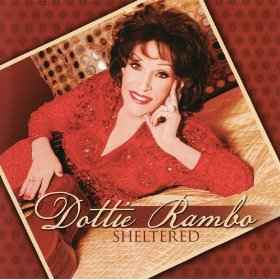 |
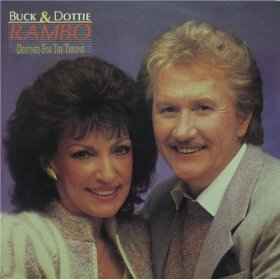 |
In the late 1990s, she again performed in concerts, evangelistic meetings and churches across the United States . In 2007, she performed nationwide and appeared in concert at country singer Dolly Parton’s Tennessee theme park, Dollywood.
In 2003 Rambo reentered the studio to record her first solo album in eighteen years. The result was the award-winning hit ‘’Stand By The River’’. In November 2007, she completed another studio album with the working title of "Sheltered". This album has a projected release of Spring 2008. The project features 12 tracks including duets with Porter Wagoner, Mel Tillis, The Whites and Lulu Roman.
Dottie Rambo died on May 11, 2008, as a result of injuries sustained in a bus accident along Interstate 44 just outside of Mount Vernon, Missouri.
The songs of Dottie Rambo have proven staying power. Through good times and bad, triumph and trial, they are there to console, uplift and sometimes just make you laugh. There is a belief: even if she hadn't written one song, she still would have changed the world – this is Dottie Rambo.
